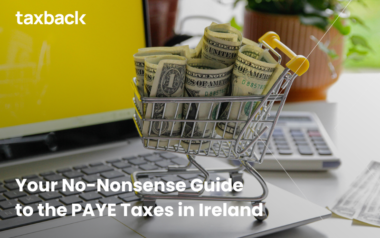Losing your job is one of the most stressful financial times in a person’s life and if you’ve been made redundant it’s important you know your rights to make sure you end up in the best financial position possible.
Ireland’s Statutory Redundancy Payments
If you are made redundant there are minimum statutory redundancy payments that your employer must pay you. This amount will be determined by the length of time you have worked for that employer and your gross weekly pay. You are entitled to:
- Two weeks’ pay for every year of continuous employment with that employer.
- An additional one week’s pay. Your gross weekly pay is your basic wage before tax and deductions and includes the average amount of any other benefits such as overtime.
Note that this payment is subject to a maximum of €600 per week.

How to qualify for the redundancy payments scheme
There are a set of factors you must meet to be able to qualify for this.
For example:
- you must have at least 104 weeks of employment with the same employer
- the employment must be insurable under the Social Welfare Acts
- you must be 16 or over
How is the weekly pay calculated?
There are a few ways in which this pay will be calculated. These include:
- The normal weekly pay you are on
- The average amount of overtime
- Benefits-in-kind
If you receive monthly pay then this figure will be divided by 4.33 to calculate the weekly pay.
Where you do not work regular hours, an average of the last 52 weeks will be used to calculate the pay.
I was laid off from work due to Covid-19
If you received either the Temporary COVID-19 Wage Subsidy Scheme (TWSS) or the Employment Wage Subsidy Scheme (EWSS), then the period you received it is counted as reckonable service when calculating any statutory redundancy.
Any period of layoff during the pandemic will not be counted as reckonable service.
If you lost out on reckonable service while temporarily laid off during COVID-19 and you are made redundant, you may be able to get a special tax-free payment of a maximum of €1,860.
How much you receive will depend on the layoff period – if you were on €600 (or more) per week and then got laid off for the emergency period, you should receive the maximum €1,860.
Get Your Irish Tax Refund Now!
What about tax?
Your lump sum redundancy payment is treated as income and will be taxed according to Ireland’s income tax rates for the tax year in which you receive it. However, there are provisions in place to reduce the amount of tax you will pay on your redundancy. If you are made redundant in Ireland you will be entitled to claim tax relief on your redundancy payment under one of the following three exemptions:
- Basic exemption: You can receive up to €10,160 tax-free as a lump sum payment plus an additional €765 for each complete year of service.
- Increased exemption: You may be able to increase your tax-free exemption payment to up to €20,160 (plus the €765 for each year of service) if you haven’t claimed for an increased exemption payment in the last 10 years or received a tax-free lump sum payment under an approved pension scheme.
- Standard capital superannuation benefit: This benefit allows people with a long-service record to receive a higher tax-free sum.
Check out our FAQ post that includes everything you need to know about Covid-19 and Irish employment and tax.
Last Updated on October 1, 2015







